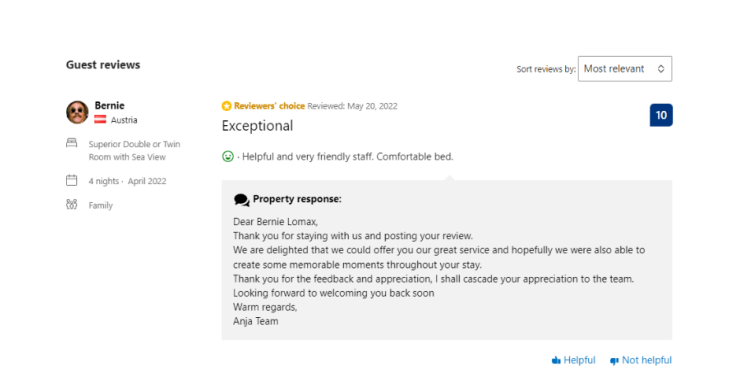Develop a hostel business plan – How to open and run
Hospitality and tourism are exciting, alluring, industries. The fun of showing travellers a good time, the joy of making guests happy, the feeling of contentment that comes from earning your own money in your own way; it’s little wonder why so many people have considered establishing their own property. And a hostel is one of the simplest and most enjoyable forms of accommodation you can provide.
Nevertheless, a hostel is a serious business, and there is much to consider before you take the leap. The challenges are many and varied, and that’s before you even accept your first guest. In this comprehensive guide we’ll take you through every step of how to start a hostel, so you can enjoy all the fun, satisfaction and profit that such a business can bring.
What is a hostel?
Generally speaking the term ‘hostel’ can be applied to any property that offers inexpensive lodging to all manner of people – not just travellers, but students and workers too. Most commonly, however, hostels are aimed at backpackers and young travellers. They offer cheap beds, and are more communal and social than other accommodation options too. Sometimes they will even offer free meals.
Hostels commonly feature dorms – shared rooms with multiple beds – though many also offer reasonably priced private rooms. Most have shared self-catering facilities and plenty of communal spaces. Opening and running a hostel can be an exciting and rewarding venture. However, it is important to make sure you have a well thought out plan in place before taking the plunge.
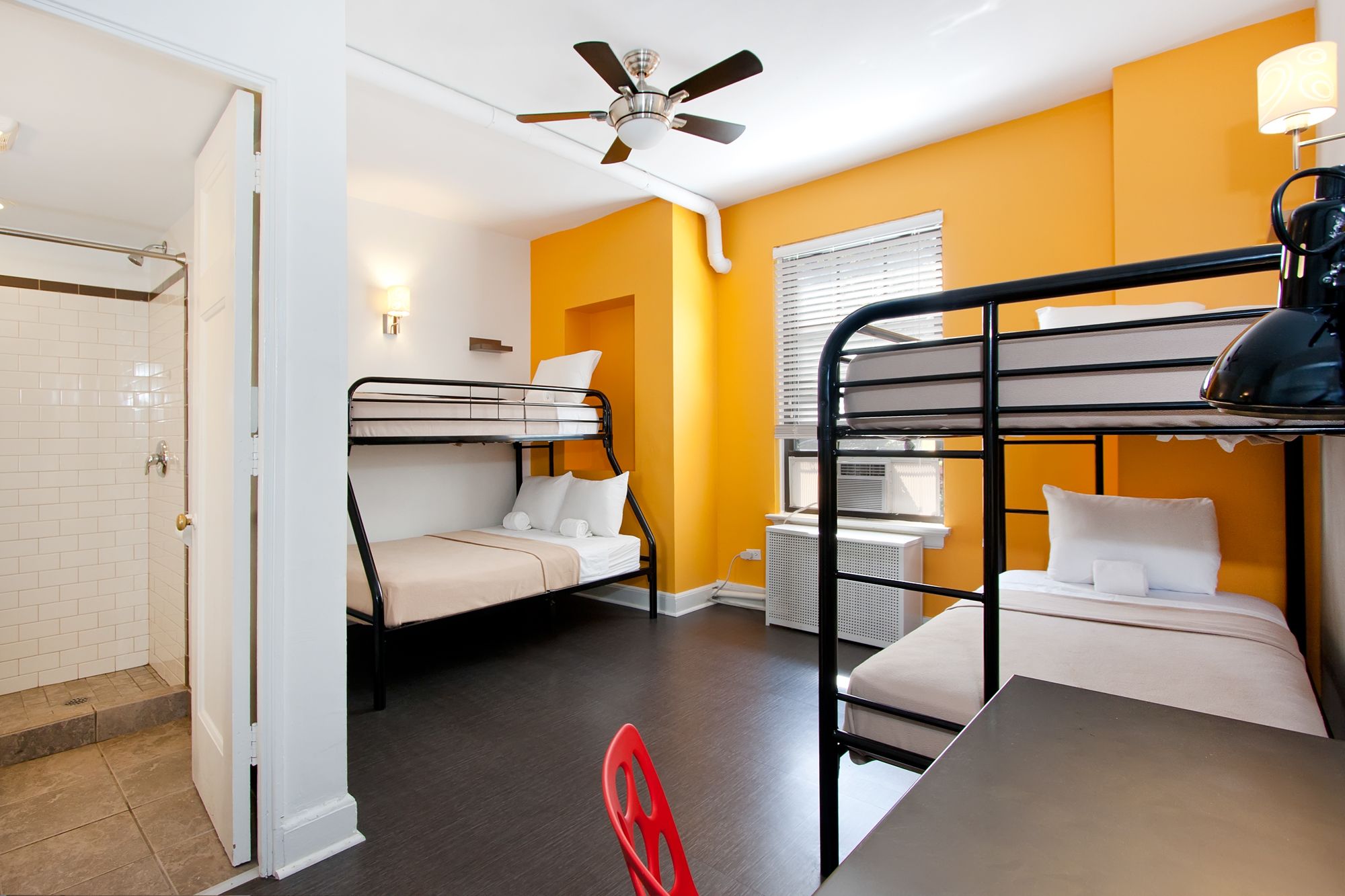
Eng Otavn Otavietnam 940x788px Develop A Hostel Busine Plan How To Open And Run1
Some tips for creating your own business plan for opening and managing a hostel
Research Your Market
Before you start planning your hostel, take time to research the local market where you’ll be operating. Understand who your target customers are likely to be (e.g., budget travelers) as well as what other accommodations exist in the area that could compete with yours (e.g., hotels). This will help inform decisions about pricing, marketing strategies, etc..
Market analysis:
- Consider what your ideal guest looks like – both your individual preference and the sort of person you’re most likely to attract. Create a ‘buyer persona’ that describes such a guest in more tangible terms.
- Consider the capacity of your hostel, and how full you can reasonably expect it to be given your location and where your ideal guest will likely be travelling from. Is the area popular with tourists? Does hostel demand exist?
- Educate yourself about the preferences of your ideal guests. Also consider how these preferences might be changing and try to get ahead of the curve.
Competitive analysis:
- Research the number, price and quality of similar hostels and accommodation options in your area.
- Try to understand how profitable other local hostels are. You may have to get creative to understand how viable the business is, such as looking at how booked up a hostel appears to be, or speaking to your local chamber of commerce.
- Where and how do your competitors market and advertise themselves?
- Which OTAs do your direct competitors use?
- How will you differentiate yourself from other hostels in the area? Options include branding, levels of amenity and target audience.
Develop Your Business Model
Once you know more about potential customers and competition in the area, create an outline of how your business model will work including factors such as pricing structure; amenities offered; staffing requirements; operational processes like check-in/check-out times; safety protocols etc.;
Secure Financing
You’ll need capital when starting any new enterprise so determine how much money is needed up front then look into financing options such as bank loans or investor funding sources that may provide additional support if necessary ;
Choose A Location & Design Layout
Selecting an appropriate location for setting up shop should involve careful consideration of several key factors like accessibility from major transportation hubs nearby attractions , zoning regulations , building size availability etc.; Additionally design layout should reflect both practical needs like kitchen laundry room storage space number of beds per room while also incorporating aesthetic elements that appeal to guests ;
Set Up Systems & Procedures
Establish systems procedures related topics like housekeeping maintenance customer service staff management finance accounting bookings inventory security emergency response plans health safety compliance etc.; Make sure all policies guidelines are documented clearly communicated among team members regularly reviewed updated accordingly ;
Market The Hostel
Create branding materials website content social media campaigns promotional activities targeted advertising partnerships with travel agents tour operators student groups charities community organizations et cetera spread word get people excited stay at upcoming facility once its ready open doors welcome first guests!
By following these steps closely , entrepreneurs can develop comprehensive blueprint guide them through process launching successful long lasting welcoming hospitality establishment !
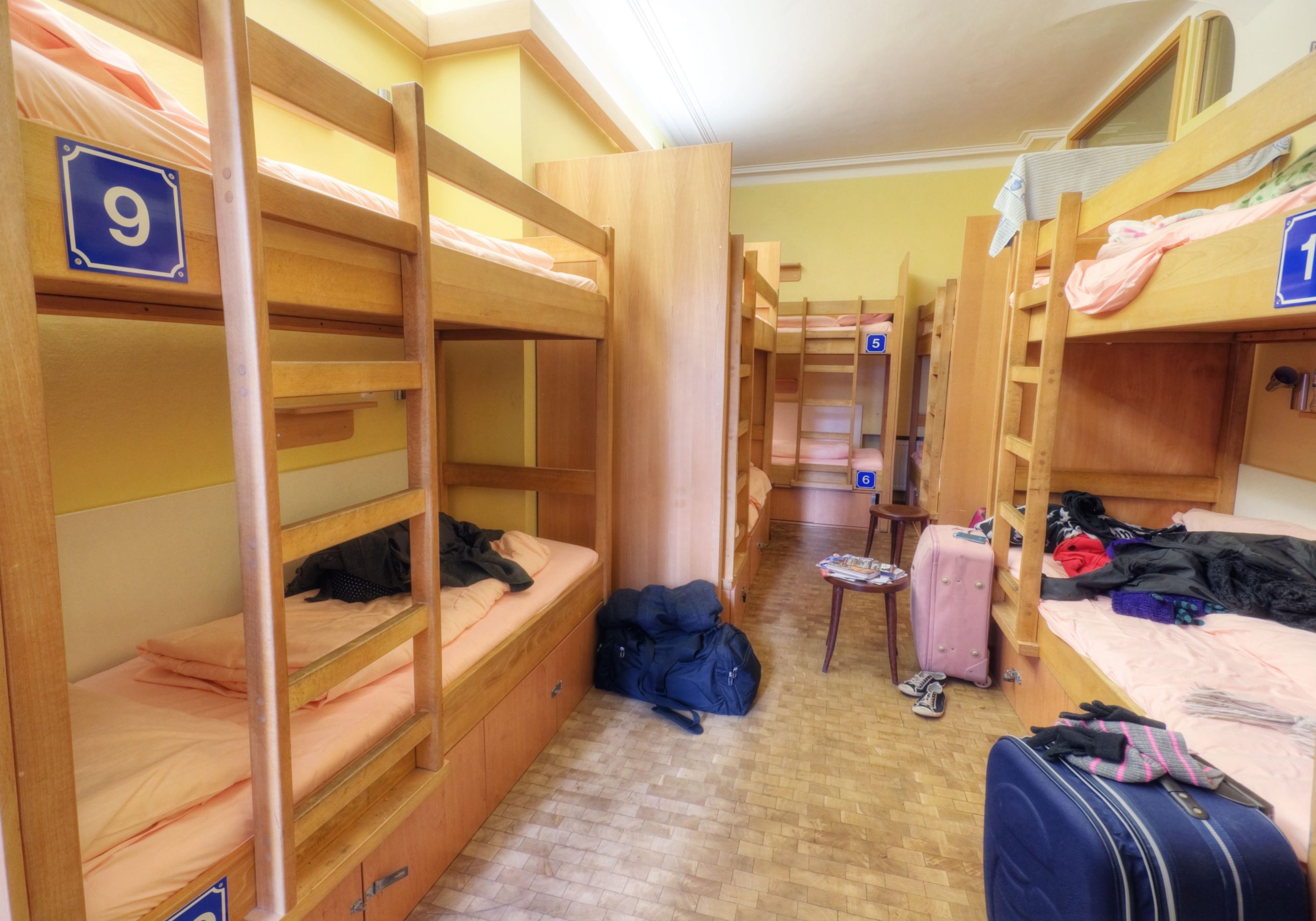
Eng Otavn Otavietnam 940x788px Develop A Hostel Busine Plan How To Open And Run2
Is owning a hostel right for you?
Potential hostel owners beware: this is less a job than it is a lifestyle.
As a hostel owner you need to be fully committed. You need to be prepared to work long hours, attending to your business at night and over weekends – indeed, especially weekends.
Sure, there will likely come a time when you find a few managers you truly trust, which will allow you to take time away. But realistically, you should expect to be on the job almost constantly for the first year or two (at the very least).
For many, the fun, excitement and fulfilment of running a hostel will more than make up for this commitment – being constantly surrounded by interesting people, sharing stories and showing them around your local area, is an enviable lifestyle.
Before you take the leap, ask yourself the following questions. If the answers are ‘yes’, you might be made of the right stuff:
- Can you handle pressure well?
- Do you get energy from being around other people?
- Are you able to get satisfaction from otherwise mundane tasks, like cleaning?
- Are you an expert on your local area?
- Do you have a deep desire to run your own business?
- Are you prepared for the less glamorous aspects of business, like bookkeeping and admin?
- Do you have a business or life partner who can support you?
- Are you prepared to make mistakes and learn from them?
- Can you multitask?
- Do you enjoy routine?
- Are you willing to innovate to achieve success?
Another question that you should ask yourself might be simple on the surface, but it cuts to the core of everything: Why? Why are you considering opening a hostel?
- Is it for the lifestyle? Many new hostel owners start their business post-travel. Having stayed in dozens of hostels, they feel the life led by a hostel owner is an enviable one. If this is your main motivation, you need to prepare for the fact that the experiences of a hostel guest and a hostel owner can be poles apart.
- Is it for the money? If so, you need to be realistic about how much money your hostel can make, and how likely it is that you’ll succeed.
- Perhaps you simply want to run your own business. In this case, you should define what success means to you, whether that’s control over your life and finances, good reviews from happy guests, industry awards, or simply having a solid business that funds your lifestyle.
If you understand what you’re getting into and your motivation for doing it, you’re ready to move onto the next step: how to start a hostel business.
Is it profitable to run a hostel?
The short answer: yes, a hostel can be highly profitable, because the hostel business model is designed to minimise costs and maximise profits.
Sure, a hostel doesn’t make as much money per guest as a hotel, but the cost of hosting each guest is far lower. And while a standard 30m² hotel room will be designed to fit two guests, a similarly sized hostel dorm might fit six or eight guests, so you can fit far more travellers in.
Let’s say you run a mid-sized hostel with space for 50 people, and charge $25 AUD per dorm bed per night. When full, you’ll be earning $1250 per night, or up to $37,500 per month.
Build an on-site bar, host local tours or offer a nightly communal dinner, and the opportunities to add value to the guest experience, and money to your bottom line, are significant.
But that’s not to say that every hostel is a success: to attract the guests you have to be the best, and that will only be possible if you bring the right knowledge, skills and mindset to the table.
The cost of starting a hostel business
Now it’s time to talk about money, in the form of hostel start-up costs.
The main cost of opening a hostel will depend on whether you’re building one from scratch, converting a building into one, or buying an existing hostel. That major cost aside, there are a number of other costs that you will face before opening your hostel. You need to ensure that you have enough funds available to meet them.
Costs will vary from hostel to hostel and country to country. They include, but are not limited to:
Zoning
Your local government will decide whether your dreams of opening a hostel will be fulfilled, or whether they need to be adjusted slightly. The rules can differ greatly from area to area, and can define things like the number of dorms, parking arrangements, quiet hours, and whether you need to live on the property. Beware: if you don’t tick every box, your business will be illegal.
Building and utilities
Your power, plumbing and gas need to be functional and up to code. Your building must be structurally sound and should look fresh and inviting. Outdoor areas should be landscaped and carefully maintained.
Appliances and furnishings
All necessary kitchen, laundry, entertainment and HVAC appliances must be purchased, installed and maintained. Choose high quality furnishings that look good and will last, as they will see a lot of use.
Interior design and decor
The unpretentious clientele enjoyed by hostels means that an eclectic, fun, and most importantly, cheap approach to design and decor can work well, while saving you thousands.
Insurance
If the worst were to happen, you need to be covered. Consider taking out the following insurances for you and your business:
- Building and contents insurance
- Public and employer liability insurance
- Business interruption insurance
- Income protection insurance
Replacement of damaged items
In a hostel, items will inevitably get broken by guests and staff. Often these instances aren’t worth getting insurance involved, or aren’t covered by insurance at all, so you need to set aside a budget for the replacement of damaged or broken cutlery, crockery, linen, decor, plants and the like.
Website and marketing
Tourism and hospitality are competitive industries – you can’t expect customers to just roll on in from the get-go. Instead you’ll need to spread the good word about your hostel. Begin by creating a website, which can be a surprisingly simple and cost-effective process with a tool like Little Hotelier’s online website builder. You should invest time in setting up OTA listings, social media channels and your Google Business Profile, and consider investing in online advertising to put your name up in lights.
On-site safety requirements
There are certain health and safety boxes that you’ll have to tick, though these can change depending on your location. At minimum you’ll need things like smoke alarms and fire extinguishers, but you may also require carbon monoxide alarms, exit signage, an emergency assembly point and whatever else will guarantee the safety of your guests.
Business supplies
A modern business cannot run on pen and paper alone. These days it may not use pen and paper at all, as going completely digital allows you to seriously cut down on office supplies like printers, scanners, filing cabinets and cash registers, replacing all these items with a laptop and a smartphone. As part of your business supplies you’ll need to consider merchant services – taking electronic payments – but even this can be done through your phone.
Staff
While some hostels are small enough to be run by one or two people, you’ll (probably) need to hire some help before you open your business. This might be as much for your sanity as anything else – it’s helpful to have someone to take on the low value jobs, like cleaning or manning the night shift, that don’t represent a particularly good use of your time.
Starting a hostel
You’ve got a business plan, you understand the costs and have secured the necessary finance. The next step in how to start your hostel is to do just that: start your hostel.
Starting a hostel is an exciting prospect – a fun and exciting business that can earn you good money, and that you can sculpt into whatever shape you wish. Let’s take a look at a few of the major steps in the process of opening your own.
What to look for when buying a hostel
One of the simplest ways to get into the hostel game is to buy an established premises. If you buy an operational hostel, a lot of the groundwork will already be done, which means far less work and a faster route to revenue.
But buying a business is a complex process: one that demands a particular set of skills, and that requires a buyer to tick a number of boxes. Before investing you should check:
- The hostel’s cash flow
- The hostel’s operating costs
- Key operational systems that are currently in place
- The list of current suppliers
- If there will be a period of post-sale training/support
- The legal requirements for running the business
There are also a number of less defined questions you should ask yourself, including:
- Is the hostel in a desirable location?
- Is the property an appropriate size?
- Does the building or decor need an upgrade?
- Does the hostel’s current target market match your ideal target market?
- How seasonal is the business?
- Are there any big costs, from permits to renovations, that will soon be due?
Another revealing question: why is the property being sold in the first place? Perhaps the owners are selling for personal reasons, or because they’re simply ready for a different challenge. But if the reason is financial, is it one you should be concerned about? Basic due diligence can help you avoid unnecessary risk.
In an ideal world you’ll have more than one option on the table. This will allow you to compare one hostel against another, to ensure you’re getting the best possible business at the best possible price.
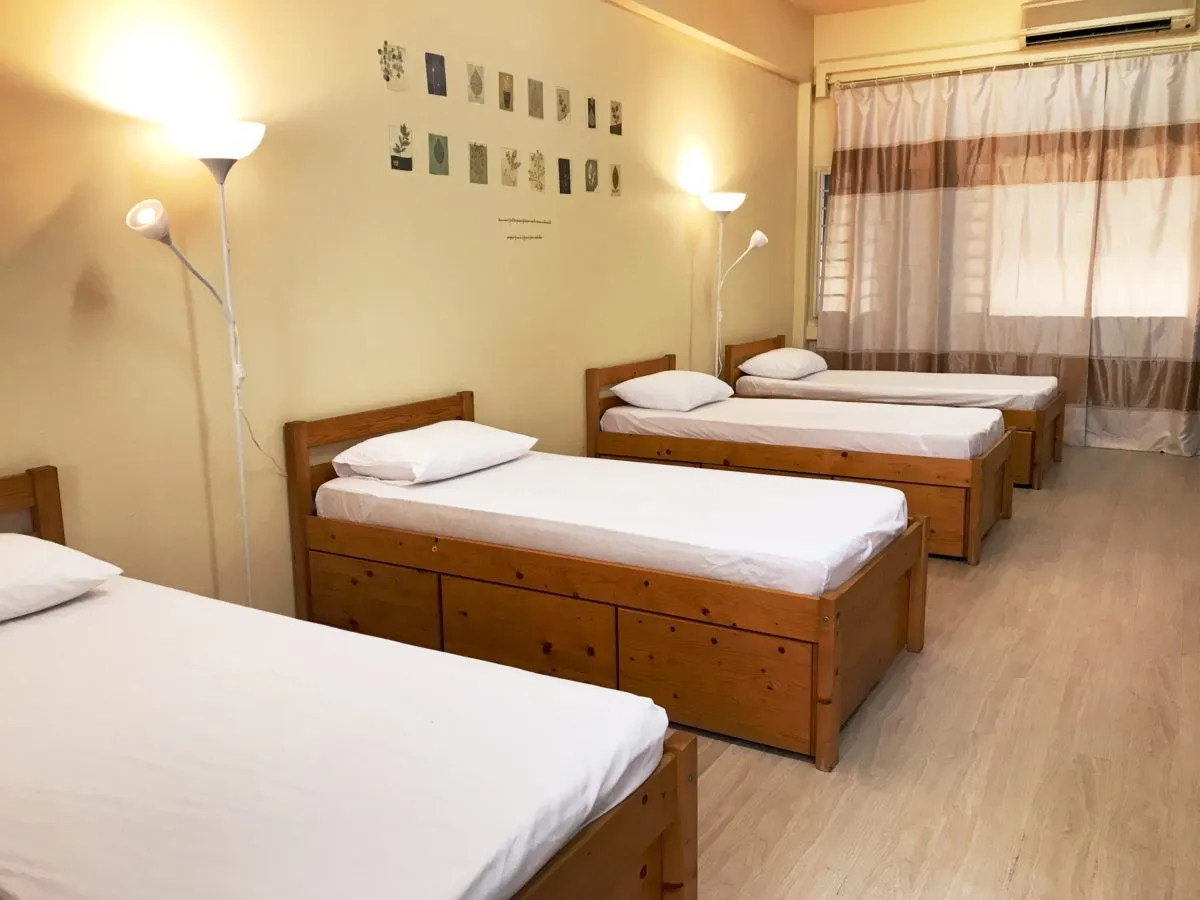
Eng Otavn Otavietnam 940x788px Develop A Hostel Busine Plan How To Open And Run3
Advice for running a hostel
You made it! You now have a fully functional hostel ready to receive guests. The dream has become a reality, and you no longer need to think about how to start a hostel business, but rather how to run one. And in many ways this is where the real work, the moneymaking work, begins.
Marketing your property, taking bookings, checking guests in and out, crafting an awesome guest experience, budgeting and analysing your earnings are just a few of the responsibilities you’re now charged with.
It can feel like a lot, so let’s look at a few tips and tricks that will make the everyday operation of your hostel a little bit easier.
Marketing your hostel online
Hostels need to cast their marketing nets unusually wide – often to all corners of the globe – in search of guests. But if you know where to direct your marketing efforts, you can get in front of your target audience at the exact time they’re looking for you.
OTAs
Most backpackers use online travel agencies (OTAs) to find their next stay, from general hotel sites like Booking.com and Expedia to backpacker-specific sites like Hostelworld. You need to ensure you have a presence on the OTAs that your target audience uses, which you will have ideally identified during your market research phase. Enhance your OTA profiles by:
- Keeping rates and availability up to date.
- Offering a detailed description of your property that answers FAQs.
- Uploading plenty of professional-quality photos that put your hostel in the best light.
- Including contact information and a link to your website.
- Networking with an OTA marketing manager to ensure your account performs as well as it can.
It’s important to have a diverse yet highly targeted channel mix. While it might sound complicated to manage listings across a number of different OTAs, a high-end software channel manager can make it super simple, allowing you to automatically remove rooms in real time across all your channels as they’re reserved, and update pricing and availability in a single click.
Your website
OTAs will charge a commission, which eats into your profits. A smart hotel owner will offer the ability to book direct, which is another function that is simple when you have the right tools. It can also be hugely profitable – the Little Hotelier online booking engine can increase revenue by up to 43%!
These direct bookings will be facilitated through your website. By improving the look, user experience, performance and functionality of your site, you can encourage more guests to book direct, while also attracting more customers by ranking higher on Google. What’s more, you don’t need to spend an arm and a leg for professional website development: the Little Hotelier online website builder allows anyone to easily create a perfectly beautiful and functional website with the ability to take direct bookings!
Metasearch engines
Sitting a level above online travel agencies, metasearch sites collate information from OTAs and display it for travellers to peruse. Once the best deal is found, the metasearch site directs the travellers to the OTA of choice. Examples of such sites include Kayak, Trivago, Skyscanner and Google’s rich results.
Establishing a meaningful connection with a metasearch site can seriously increase a hostel’s traffic volume. Explore a number of metasearch options and consider advertising on those that are used by your target audience.
Social media
As places full of young, beautiful people having the time of their lives, hostels feel like they’re built to produce social media content. As a hostel owner you should consider which platforms will be most effective in reaching your target market – Facebook, Instagram and TikTok are the obvious choices.
Aim to post relevant, engaging content consistently: around 3-4 times a week per platform. While it might feel like you have plenty to share, posting can get trickier over time as you spend all your best ideas, so here’s some content creation inspiration:
- Travel tips and tricks.
- Fun moments captured at your hostel.
- Info on things to do and see in your local area.
- Reviews and recommendations of local restaurants and bars.
- Competitions and promotions.
- Guest reviews
Tips on selling a hostel
Having successfully run your hostel over the course of years, there may come a time when you are ready to sell up and move on. This process isn’t as simple as putting a ‘FOR SALE’ sign on your front lawn – there are a number of steps to the sales process, which we’ll go through (in brief) below:
- Prepare your financial records: Potential buyers will want a detailed account of your finances before they buy, so work with an accountant to make sense of your tax and financial records, and your incomings and outgoings.
- Organise a property inspection: In order for a sale to go through successfully, and for you to get the price you’re hoping for, everything will need to be up to code. Get your property inspected: everything from the foundation to the utilities.
- Price your business fairly: It doesn’t matter what you think your hostel business is worth – it only matters what the market thinks your hostel business is worth. Before listing your property, get an agent or valuer to advise on what a fair price might be, and get them to show you how they came up with the figure, as potential buyers will also ask for this proof.
- Finish strong: Preparing to sell your property can be a big distraction from your day to day work, but you can’t let standards slip, as this will affect the price your business can fetch. You should instead strive for your best results ever, as plentiful bookings, great reviews and strong finances highlight the value of the business to potential buyers.
- Sell fully furnished: From bunk beds to extra large couches, many of your furnishings will likely be hostel-specific, and of limited value to you elsewhere. It’s wise to sell your hostel fully-furnished to make your life and the buyer’s life a little easier.
- Find the right professionals: Selling a hostel is a unique task, so work with an agent or business broker who has experience in the hospitality industry – ideally one who has previously sold hostels. Review the agent/broker’s current listings to ensure they put in the requisite effort and will market your business in the right way.
- Be patient: The business market, like the property market, has times of high activity and low activity, and these tend to be defined by external economic factors. Business purchases are also complicated – they just take time. If your business doesn’t attract interest or sell straight away, don’t be disheartened. Know that if it is a good business listed at a fair price, the right buyer will come eventually.
Understanding the journey of a hostel guest
The success of your hostel will be decided by the guests. If they have a good time, they’ll write glowing reviews, tell their friends and family, and return to you regularly, all of which increases the likelihood that your venture will succeed.
To ensure they have that good time, it’s wise to put yourself in a guest’s shoes and step through the process of finding, booking and staying at your hostel:
- Visibility: Almost every backpacker will now search for – and hopefully find – your property online, so you need to ensure you’re visible. Google “hostel [your location]” and check whether you come up as a result. If you don’t, consider investing in search engine optimisation (SEO). Do the same on OTAs, and if you don’t rank high, consider paying to be placed at the top.
- Website: No matter where they find you, an interested customer is likely to navigate to your website to get more detail on your hostel, and perhaps to see if they can get a good deal by booking direct. The best hostel websites are beautiful, clean, simple to navigate, filled with useful and well organised information, and allow guests to make a reservation on the spot. The good news is that with the help of Little Hotelier you can build your own that ticks every one of those boxes.
- Pre-arrival: Once the guest books, they’ll likely have quite a few questions: How do I get there? What activities can I do there? What should I pack? Where should I eat? This is a great opportunity for your hostel to help the guest enhance their own experience, by emailing them all the info they need for a comfortable, fun and memorable stay. By establishing early lines of communication, you can also answer any unique questions they might have.
- The stay: When the guest arrives, it’s up to you to provide the warm, welcoming, personalised service that will make them feel at home. Try to go over and above where possible, and never show when you’re having a bad or stressful day. Keep in contact with the guest after they check out: thank them for the stay, ask them for a review, and consider offering them a loyalty discount if they stay again, as return customers are the most valuable customers.
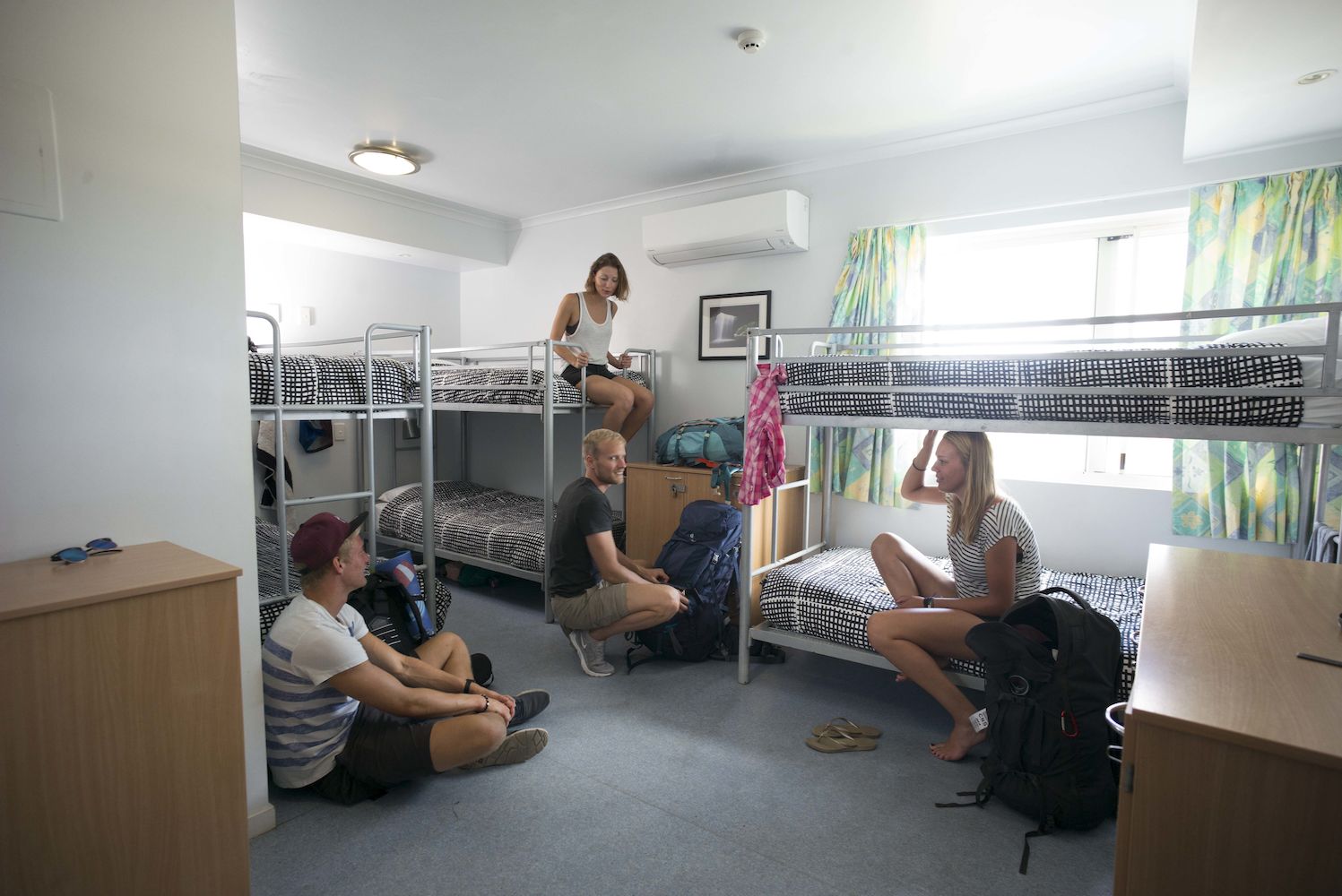
Eng Otavn Otavietnam 940x788px Develop A Hostel Busine Plan How To Open And Run5
10 hostel management tips
Why are some hostels more successful than others? There are an endless list of factors that can cause a hostel to fall or fly, many of which are out of a hostel owner’s control. But there are also a number of small things that, when taken together, can lead to real and sustained success.
Here are 10 tips for managing your hostel in the most successful way possible.
- Promote your destination as well as your property: If there are awesome things to do in your area, tell the world! If you can attract more people to the area, the whole local industry wins.
- Lean into hostel management tech: From hotel data insights report to help make better business decisions, to leaning on automation to manage your OTA channels, technology makes your job easier and your business more successful. Early adopters tend to enjoy the biggest benefits, as the tech delivers a greater level of competitive advantage at the bottom of the adoption curve.
- Lean into guest experience tech: Don’t use tech to replace personal service, but to enhance it. Think of an online booking engine that offers a smooth experience and the best possible price, or a mobile app that allows backpackers to find information and interact with your hostel at their convenience.
- Network with other owners: Despite the inherent competition, the hospitality and tourism industries can be particularly welcoming, and you might be surprised at how open other business owners are about sharing tips and tricks. Network by searching social platforms like Facebook and LinkedIn and joining local business associations.
- Set aside time for social media: Success on social media is built on long-term consistency… but with the rewards only enjoyed far down the road, the task of posting is forever pushed down the priority list. Successful hostel owners, however, know the power of social media, and carve out time in their weekly schedules to post.
- Be flexible wherever you can: Many hostel owners dread requests for early check ins or late check outs. But while there may be a temptation to give a blanket refusal to such questions, consider the appreciation that can stem from saying yes whenever possible: you might turn a few guests into brand ambassadors who tell their friends about the kindness and generosity of your hostel.
- Stock commonly forgotten items: Most travellers have either lost an important item on the road or have forgotten to pack it in the first place. You can make everyone’s life easier, and a bit of money, by stocking common items like toothbrushes, toothpaste, deodorant, feminine hygiene products, towels and phone chargers.
- Use events to bring your guests together: The social aspect of hostels is perhaps their greatest drawcard – staying in shared accommodation makes it easy to meet like-minded people. You can help facilitate these interactions by organising group tours, dinners and nightly events for your guests.
- Elevate your inclusions: Hostels are famously the most cheap and cheerful of accommodation options, which represents an opportunity for hostel owners. You can elevate your hostel by including simple things for free: things like towels, tea and coffee, basic cooking ingredients, shampoo, conditioner and bodywash.
- Establish a healthy routine: You can only be the best host when you feel the best you. Avoid overworking by hiring help, try to establish routines wherever possible, and do what you can to plan tomorrow before the end of today.
How to hire hostel staff
As a general rule, a hostel that hosts more than 15 or so guests will be too much work to run without help. When the time comes to bring another person in, you can take one of two paths:
- Find volunteers: You might have a willing and able worker staying at your hostel right when you need them! Many hostels get extra help from their guests, usually a few hours a day in return from food and board. This is simple and cost-effective, but can be slightly less convenient than having a proper staff member on your books, as there will be constant worker churn, and you may struggle to find people with necessary skills and qualifications.
- Hire a staff member: If you are willing to invest in a proper employee you’ll secure a committed worker who is capable of doing whatever you need them to do – provided you hire well.
No matter which of these two paths you take, you’ll need to identify the tasks that you most want to offload, whether admin, front desk, cleaning or landscaping, and then post a job ad that describes the position, and the sort of worker you’re looking for, in detail.
Getting word out about your job will depend on the sort of worker you’re looking for. Many volunteers can be sourced on site with simple posters, or through channels like WWOOF. Personal recommendations and social media posts are useful for both types of worker, while LinkedIn and job boards are great for finding paid employees.
In the interview phase, look for hard skills like qualifications and experience, and soft skills like reliability and culture fit. A certain type of person – fun-loving, extroverted, personable and welcoming – will do particularly well in a hostel job.
Once you have found the perfect worker, you should do all you can to create an environment where they can thrive. Ensure that you:
- Offer your workers fair compensation.
- Give them all the training and guidance they need to succeed.
- Keep lines of communication open to ensure they let you know when they’re struggling, and so you can offer constructive criticism on their performance.
- Involve them in decision making to give them a sense of ownership.
- Say thank you, highlight the things they do well, and reward good performance.
10 mistakes to avoid when opening a hostel
As with any business, there are a few hurdles and potholes that you’ll need to dodge along the path to hostel success.
Sure, you might’ve stayed at dozens of hostels before, and believe that this is the business for you. You’re probably a people person who gets energy from being around others. But passion and personality are just two pieces of a far larger puzzle – a prospective hostel owner needs to go in with their eyes completely open as to the realities of the business.
Here are 10 mistakes to avoid:
- Going in blind: Sure, you may have stayed at a few hostels before, but do you truly know what running a hostel is like? Speak to hostel owners while you stay on their property. Reach out to owners on LinkedIn. Do all that you can to get a sense of what you’re getting into before you make the leap.
- Failing to do market research: You can’t just open a hostel and expect to get business. You first need to understand whether there is a demand for this type of accommodation in your location. You need to know the type of guest you’re targeting. And you need to run some basic numbers to see whether your hostel dream is a viable one.
- Overdelivering: The desire to make guests happy will run deep in most hostel owners. And while it’s important that you do, you can’t overdeliver to the point where you lose money. You’re running a business, not a charity, so you need to please guests while retaining those all important profit margins. Your prices should reflect the quality of the experience you offer, and little things, like a free Sunday dinner or a free beer on arrival, can be the (small) touches that make your hostel memorable.
- Going it alone: Unlike other properties, like apartment hotels and B&Bs, hostels are particularly hands-on. Guests hang out in communal spaces, and drinks and chats often roll late into the night. You don’t want to be the one who has to turn the lights off at 2am then wake up to clean at 6am. As a hostel owner you need to understand the value of your time – hire staff to take care of the low value work, so you’re free to focus on the high value stuff, like crafting an awesome guest experience and growing your business. A property management tool will seriously reduce the busywork too.
- Failing to market your business: People won’t choose your hostel if they don’t know about your hostel. While you might assume that word will simply spread, that a guest will tell their friends, who will tell their friends, it’s not usually that simple. In the competitive world of hospitality, you need to invest in marketing – Google Ads, highlighted OTA listings, sponsored social media posts – to put your name up in lights.
- Opening too early: Your first few reviews are by far the most valuable, because if you begin with a string of five-stars or ten-out-of-tens, people will be eager to see what all the fuss is about. But if you open too early, you can do real damage to your brand by exposing guests to an unfinished, disorganised or unprofessional experience.
- A lack of established policies: Misunderstandings between you and your guests can be awkward and in some cases costly. You need to be clear on your rules around booking, cancellation, arrival, departure, payment, and all your on-site rules, which can be as easy as sending a clear and concise email before they arrive.
- Failing to differentiate: Standard hostels consign themselves to limited success. You might get a few guests. If you’re lucky you might even make a bit of money. But in reality, if you don’t differentiate your hostel from others in the area, you don’t give guests any reason to choose you.
- Not investing in tech: Admin is boring, time consuming, and takes you away from the more fun and valuable aspects of running your own hostel, like creating a memorable guest experience. A complete hostel property management solution like Little Hotelier can streamline and automate all manner of tasks, from front desk check in software to an online channel manager, to save you up to 35 minutes per booking. Smart hostel owners know that an investment in the right technology is soon paid back – in the case of Little Hotelier, to the tune of 63x ROI.
- Failing to tick the legal boxes: There are a lot of unglamorous tasks relating to rules and regulations when you run a hostel, but each needs to be methodically ticked off. Obtaining the right permits, from zoning compliance to alcohol licences. Getting appropriate insurance coverage. Passing inspections. Ensuring all staff have the qualifications they might need, from first aid training to safe food handling. It can be a grind, but it’s a necessary one.
The Key Takeaways
- Hostels are fun and exciting business ventures that can be incredibly profitable.
- Hostel ownership is as much a lifestyle as it is a job.
- Hostel owners tend to be high energy, personable and entrepreneurial.
- Work to understand exactly what you’re getting into before you take the leap.
- If you decide to move forward, begin by developing a hostel business plan.
- Consider the upfront and ongoing costs to ensure you can fund your venture.
- Know what to ask when shopping for a property or established hostel business.
- Learn from the mistakes of others rather than making them yourself.
- Understand who you hope to attract, and what their journey with your hostel will look like.
- Invest in marketing early, and target your efforts at that ideal customer.
- Seek out management advice from people who have done it all before.
- Adopt simple but powerful technology management systems to make running your property easier and more profitable.
A basic hostel business plan template
As an entirely bespoke document designed to do a very specific job, business plans vary greatly in size, shape and content. That said, there are a few pieces of information that all business plans should cover. Consider how the following apply to your budding hostel business:
Goals:
- Why are you considering opening a hostel? Is it for financial, personal or lifestyle reasons?
- How much profit would you (reasonably) like to make in the following X years?
- Do your hostel goals mesh with your personal situation in the short and long term?
Requirements:
- How much capital do you need to start the hostel, and what are the ongoing costs?
- What local licences, permits, rules and regulations apply to your hostel? Think zoning, building and housing codes, health regulations, alcohol licensing and more.
- What insurance cover do you need to secure?
- What tax requirements (local, state and federal) will you need to abide by? It’s always recommended that a business owner seek the help of an accountant.
- What business structure – sole trader, partnership, trust, proprietary limited (pty ltd) – will be best?
Management
- Consider the upfront and ongoing costs for maintaining your property’s facilities, equipment, supplies and services.
- Price up any outsourced services, such as cleaning, gardening and laundry.
- Develop your hostel standard operating procedures (SOPs).

